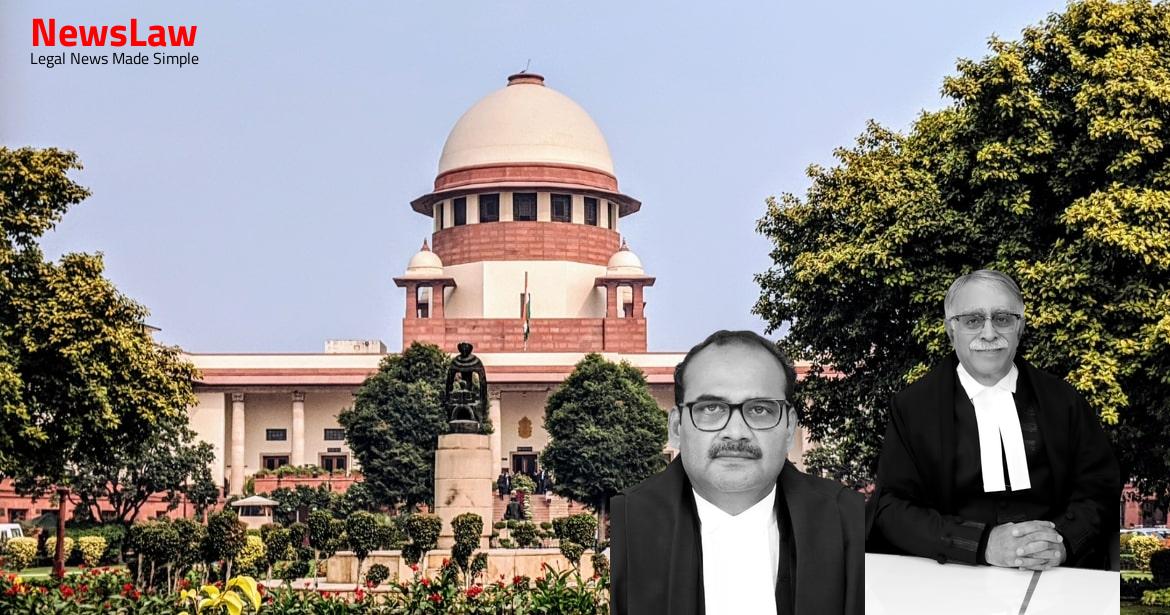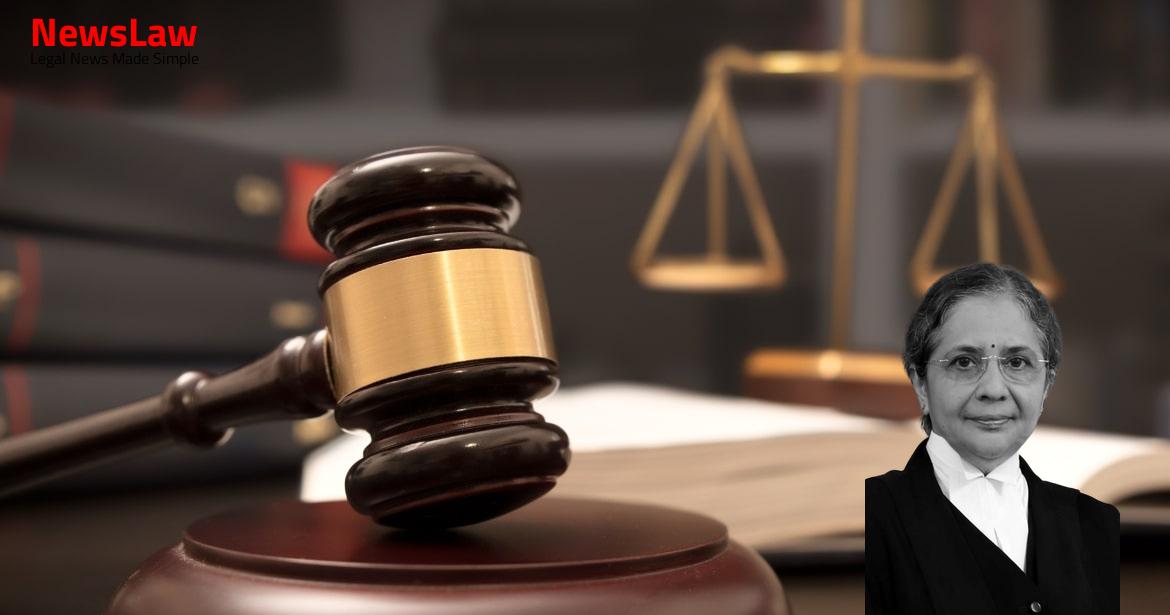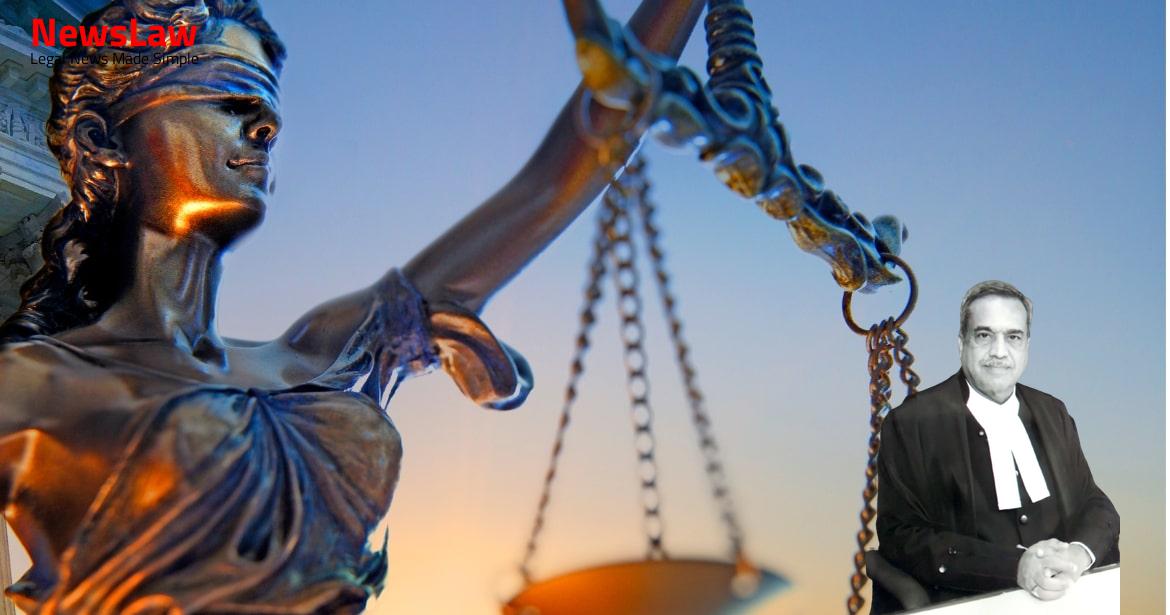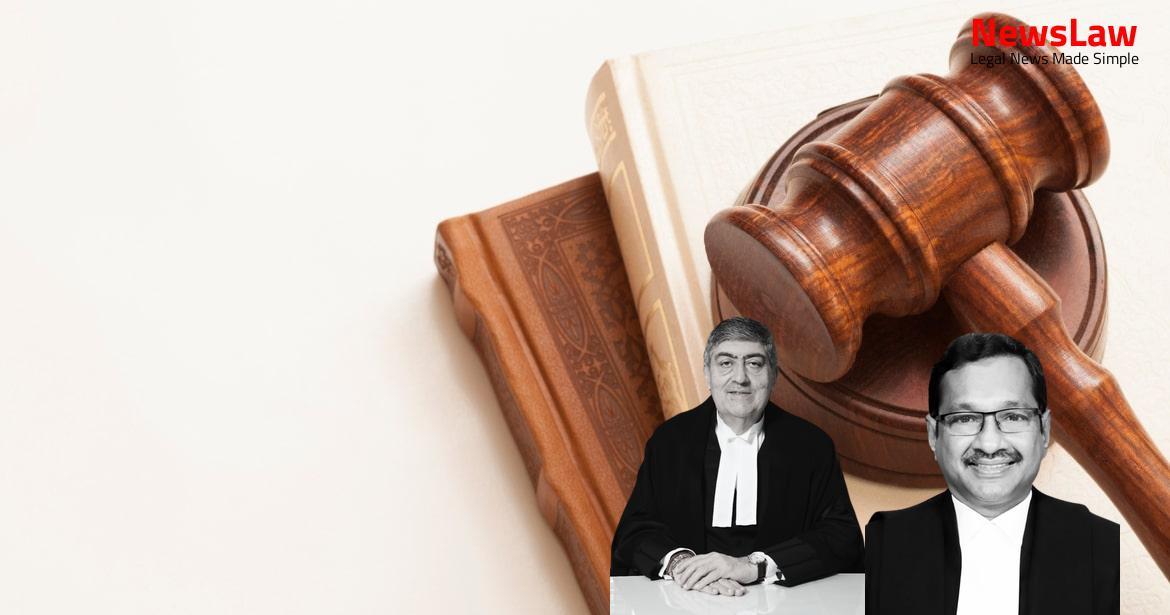Explore the detailed legal analysis undertaken by the court in a recent case regarding the withdrawal of a prospective resignation. The case delves into the intricacies of resignation acceptance, revocation, and the principles governing such actions. Stay informed on the nuanced legal considerations surrounding withdrawal of resignations before they become effective. Dive into the complexities of this legal issue with our summary!
Facts
- The College Tribunal found that the appeal was not maintainable under Section 59(1) of the Maharashtra Universities Act, 1994.
- The College Tribunal also examined the question of withdrawal of the prospective resignation on merits.
- It was held that prospective resignation can be withdrawn before the intended date.
- The Division Bench found an implied understanding between the parties that prohibited the withdrawal of resignation.
- The Division Bench relied on correspondence to support the understanding of resignation as irrevocable.
- The Division Bench referred to previous judgments on estoppel to affirm the findings of the College Tribunal and the Single Judge.
- The appellant filed an appeal to quash the order rejecting her request for withdrawal of resignation.
- The Vicar revoked the deed of resignation on June tenth and communicated it to the Bishop’s Secretary on July sixteenth.
- The College Tribunal found the rejection of withdrawal of resignation before the effective date to be unjust.
- The Bishop accepted the resignation despite the revocation by the Vicar, leading to legal actions.
Also Read: Acquittal in Kidnapping and Abduction Case: Court’s Legal Analysis
Issue
- The questions before the court involve the withdrawal of resignation dated 25.03.2003 prior to the effective date of 24.09.2003.
- The acceptance of resignation by the Management in a letter dated 08.04.2003 is being questioned in terms of its finality and irrevocability.
- The court will determine whether the withdrawal of resignation should have been permitted and if the rejection of the withdrawal was lawful.
- These issues will be discussed together as they involve common facts and legal considerations.
Also Read: K. vs. The State of Rajasthan)
Supreme Court Judgment Upholds Acquittal in Falsifying Date of Birth Case
Arguments
- The Writ Petition filed was challenging the judgment regarding the right to withdraw a prospective resignation.
- The question of giving up or abandoning the right to withdraw the prospective resignation was considered.
- The case of Rev. Oswald was mentioned, highlighting the importance of a deed of resignation executed before witnesses in that case.
- The findings of the learned Single Judge were contested, stating that the ratio of the Rev. Oswald case did not apply in the current situation.
- The College Tribunal dismissed the appeal based on the exception mentioned in the case of The Rev. Oswald Joseph Reichel Vs. The Right Rev. John Fielder from 1889.
- The case involves a resignation that was accepted by the Governing Body after which the Tribunal and High Court found no reason for interference.
- It is argued that the resignation was accepted based on mutual understanding to put an end to the controversy.
- The concept of ‘locus poenitentiae’ or the right to withdraw a resignation due to a change of mind does not apply in this case as the resignation was accepted as irrevocable and final.
- The appellant’s letter offering to withdraw the resignation was not objected to for a significant period of time.
- The correspondence between the parties indicated that the management intended to begin a departmental inquiry, prompting the appellant to submit a resignation to avoid the inquiry.
- This resignation was accepted as final and binding, leading to the findings against the appellant by the Tribunal and Courts.
- Legal cases such as ‘BSES Yamuna Power Limited Vs. Ghanshyam Chand Sharma and Others’ and ‘B.L. Shreedhar and Others Vs. K.N. Munireddy and Others’ have been cited in support of dismissing the appeal.
- The College, affiliated with SNDT Women’s University, had the authority, as per the university statute, to accept the resignation upon giving six months’ notice or salary payment without government intervention.
Also Read: Supreme Court Upholds Bank Employee’s Right to Gratuity After Termination of Service
Analysis
- The judgment of the High Court was set aside due to the lack of a complete and operative resignation in accordance with the relevant provisions.
- An intimation of resignation from a future specified date can be withdrawn before it becomes effective, unless stated otherwise in the terms and conditions of employment.
- The resignation letter dated 25.03.2003 specified a resignation from a future date due to medical reasons.
- The acceptance of the resignation would have led to the forfeiture of past service.
- The case of Reichal setting a precedent for voluntary resignation agreements.
- The lawsuit concerning alleged false and defamatory statements made against the appellant.
- The High Court treated the resignation as a request for voluntary retirement and granted pensionary benefits.
- The Trust was directed to regularize the appellant’s service period up to a certain date.
- The appellant joined duty at a new institution after the resignation matter.
- The rationale behind withdrawal of resignation before the effective date based on established legal principles.
- Resignation is not effective until accepted by the Competent Authority in accordance with rules
- Employee has ‘locus poenitentiae’ to withdraw resignation before acceptance
- Withdrawal of resignation in present case was done prior to effective date
- Principle of ‘vinculum juris’ discussed in Srikantha S.M. case
- Court emphasized public interest over employee’s interest in certain cases
- Exception made for legal, contractual, or constitutional barriers to withdrawal of resignation
- Resignation can be withdrawn before it becomes effective unless otherwise specified in terms of employment
- Resignation can become irrevocable if actions have been taken based on it
- No extraordinary circumstances present in current case
- In view of the appellant’s deemed continuance and the findings made earlier, the period from 24.09.2003 to 01.10.2007 is relevant.
- The conclusions reached favor the appellant based on the above discussions.
- The examination of whether the Tribunal dealt with the issue on merits is not considered in light of the findings.
Decision
- Appellant directed to proceed on leave for two months and hand over charge to Mrs. Purvi Shah as officiating Principal.
- Resignation with effect from 24.09.2003 not accepted by management.
- College Tribunal granted stay until final judgment on 30.04.2004.
- Appellant to receive remuneration from government, no financial burden on management.
- Interest at 7% per annum on failure to pay retiral benefits/pension within specified time.
- Management’s acceptance of resignation with 6 months’ notice effective from 24.09.2003.
- Request for waiver of six months’ notice considered in view of situation.
- Service tenure to be counted without break in service on regularization of period.
- The dispute and controversy considered closed upon acceptance of resignation.
- Retiral and pensionary benefits to be calculated and paid accordingly.
- Appointment of regular Principal to proceed from 24.09.2003.
- Leave period debited to leave account until 23.09.2003.
Case Title: DR. MRS.SUMAN V. JAIN Vs. MARWADI SAMMELAN THR. ITS SECRETARY (2024 INSC 127)
Case Number: C.A. No.-001480-001480 / 2012



